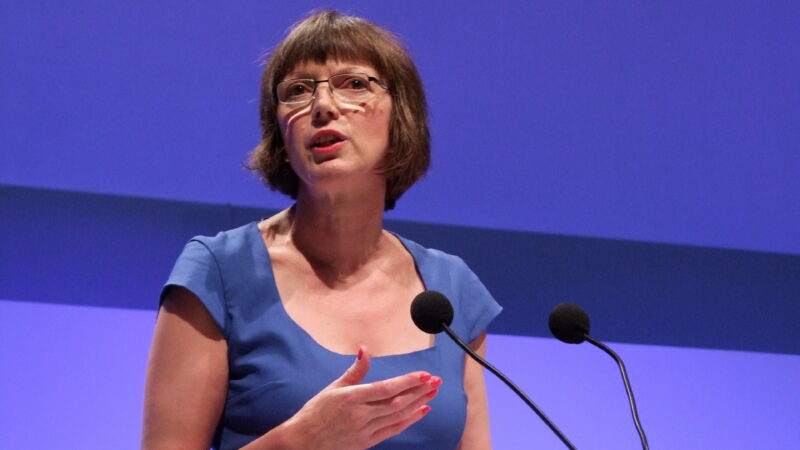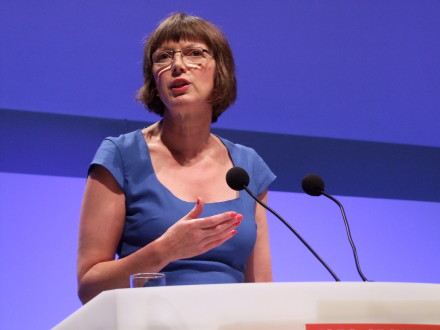

During this year’s EU referendum campaign, I met many people – including lots of trade union members – who were concerned about immigration. They knew that leaving the EU might be bad for the economy overall, but they didn’t see how that affected them. And for many, that risk was outweighed by their desire to resolve their concerns about immigration. Reps talking to members on the shop floor – even those working in exporting industries that might be hit hard by Brexit – reported the same.
The campaign gave a voice to people who feel left behind by the hollowing out of local labour markets and pace of change in the communities they live in. In many of those communities – often, but not always, outside London and the south-east – good skilled unionised jobs that pay enough to raise a family have gone. The average wage is still £40 per week lower than it was before the crisis – so no wonder that telling people that wages might fall further after Brexit didn’t hit home.
Although the outcome of the referendum wasn’t what the TUC wanted, since the result we’ve been clear: whatever happens, working people must not pay the price of the decision to leave the EU.
Concern about immigration drove many votes for Leave – and doing something about these concerns is crucial if the UK is to forge a prosperous and cohesive future after the referendum. When GQRR polled voters for us after 23 June, they found that nearly three-quarters of people who voted Leave put immigration in their top three concerns. Even more important, 53 per cent of all voters felt that the Remain campaign dismissed legitimate concerns about immigration, including more than a quarter of Remain voters.
But here’s the most interesting thing: 66 per cent of voters – and 55 per cent of Leave voters – also agreed that “as long as the system is well managed, immigration can be good for Britain”.
So today, the TUC are publishing Managing migration better for Britain, a set of practical solutions that the government can put in place immediately. Our suggestions won’t satisfy those who want an end to immigration altogether – although the Leave campaign was never promising any such thing. But they are a strong platform to rebuild trust.
We need fair rules, properly enforced by a bigger Border Force. The government needs to act to close loopholes and properly enforce the law to stop bad bosses getting away with exploiting migrant workers and undercutting local labour markets.
In the wider economy, the government should set up modern wages councils in industries like catering and agriculture, to raise wages and stop exploitation. And we must stop importing workers as a long-term solution to filling skills gaps when we can train local people instead.
We need extra cash for schools, hospitals and public services where they are under pressure – including a new bigger Migration Impacts Fund which gives local people a say over how the money is spent, and makes sure the economic benefits of migration are shared fairly.
Alongside this, we need to reboot and rebalance the economy. In the immediate aftermath of the referendum, we called on the government to make a commitment to big infrastructure investment programmes that would create good jobs with decent pay – like giving the go-ahead to a third runway at Heathrow, supporting HS2, kicking off more high-speed rail and starting a major housebuilding programme. And in the longer term, we need an industrial strategy that spreads good jobs around the regions and nations of the UK, so that people can build the life they want on a wage they can live on, in the towns and cities they love.
Culture and identity matters too. Everyone should have the chance to learn English. And we need to get out there and stand up for modern British and trade union values – doing your bit, respect for difference, a profound opposition to racism and extremism. That means giving everyone a chance to show their pride in where they live. The best way to do that is through inclusive events and celebrations – like big sporting occasions, culture, historic anniversaries, volunteering and commemorative events like Remembrance Sunday.
All of us in leadership positions need to listen more carefully to what people are telling us about what they think is wrong in the UK – and we need to respond. That’s why the TUC is pushing for a system that manages migration better for Britain.
Frances O’Grady is General Secretary of the TUC




More from LabourList
Starmer or Sarwar: Scottish Labour MSPs and MPs split over Keir Starmer’s future
‘Every Lidl helps: What can the Government do to bring down food prices?’
Delivering in Government: your weekly round up of good news Labour stories